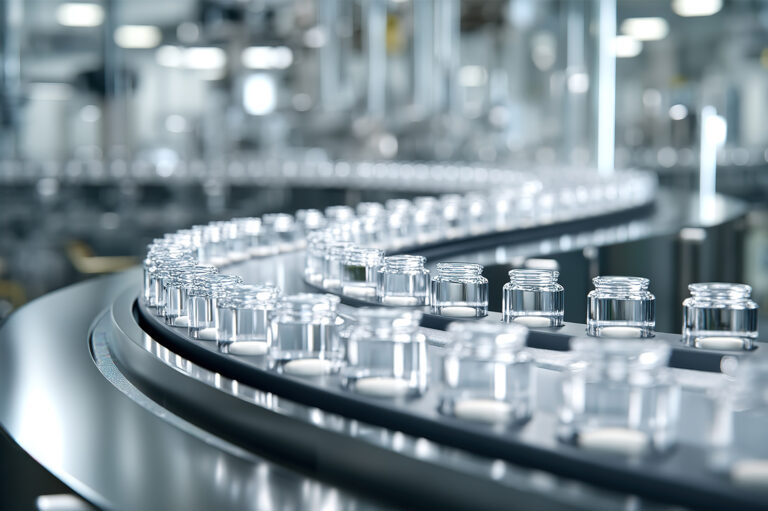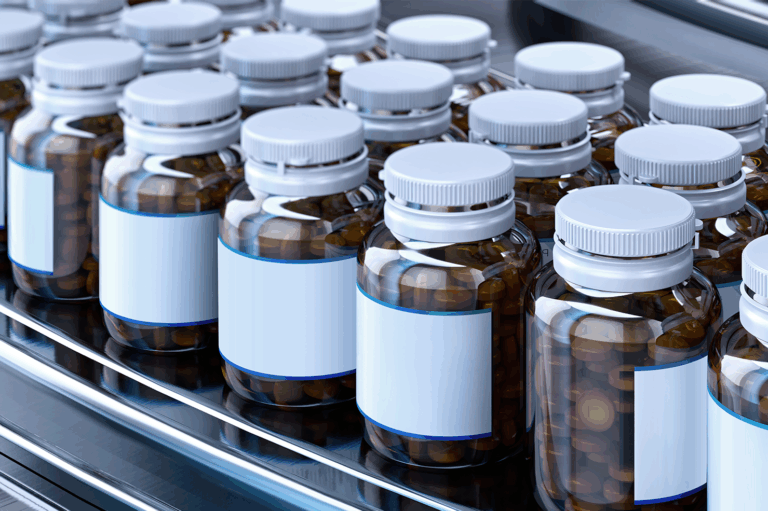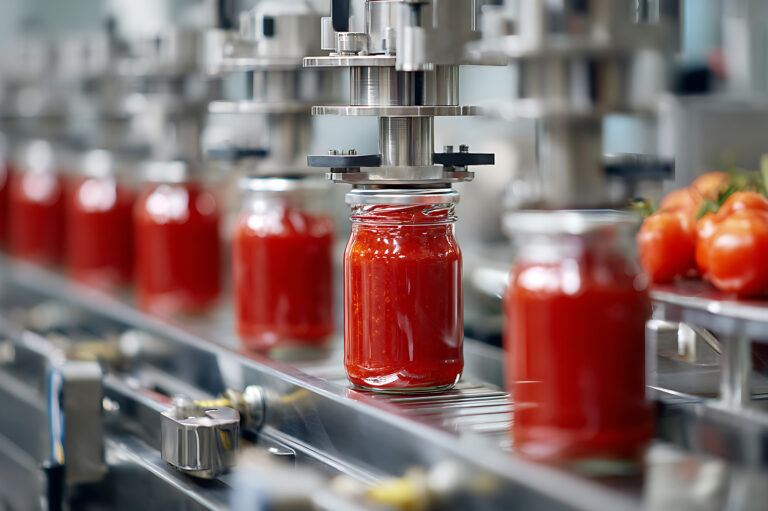Food product packaging requires careful consideration of safety and compliance standards. Recent challenges in 2024 have highlighted these concerns, with increasing regulatory scrutiny of packaging materials and growing consumer awareness of chemical migration from food contact surfaces. At Pattesons Glass, every piece of glass packaging that leaves our facility meets stringent European and UK regulations.
Packaging-related incidents can have serious financial consequences. The UK Food Standards Agency (FSA) maintained relatively stable recall numbers in 2024, but foreign body contamination from packaging failures and allergen labelling errors continue to challenge the industry. When packaging systems fail, the cost to businesses and consumer trust can be devastating.
Understanding Food Contact Compliance and Chemical Migration
Our commitment to safety begins with comprehensive compliance with the Materials and Articles in Contact with Food (England) Regulation 2012. This legislation ensures that all materials coming into contact with food products are safe for human consumption and won’t contaminate the contents.
Recent research published in nCritical Reviews in Food Science and Nutrition found that 2,881 food contact chemicals have been detected migrating from packaging materials. More than two-thirds of these chemicals (1,975) were identified in plastic packaging, whilst only 47 were detected in glass and ceramic materials.
European data shows particular concern about packaging materials, with 92 RASFF notifications in 2023 relating to chemical migrants in food contact materials from China.
Glass was identified as the safest food contact material. Research by the Food Packaging Forum confirms that glass’s chemical structure prevents molecules from passing through, making chemical migration virtually impossible except from closure materials.
This matters for businesses because packaging choice directly affects product safety. Pharmaceutical companies like Pfizer and GSK rely exclusively on glass vials for injectable medications because plastic alternatives could leach chemicals that compromise drug efficacy. Similarly, premium food and beverage producers choose glass to preserve flavour integrity and quality.
The Benefit of Glass Chemical Inertness
Glass offers superior protection against chemical migration – the transfer of substances from packaging into food. Unlike plastic materials that can release phthalates, BPA, and other chemicals, glass’s molecular structure prevents virtually all chemical migration.
This advantage is particularly evident in heavy metals regulations.
Heavy metals content and chemical migration are major concerns for packaging safety that glass packaging addresses through its fundamental properties.
Our glass products comply with EU Directive 94/62/EC, which sets strict limits on heavy metals like lead, mercury, cadmium, and hexavalent chromium in packaging materials. These regulations exist to prevent harmful metals from migrating into food.
Glass packaging is permitted higher heavy metal content (up to 200ppm versus 100ppm for other materials) because of its unique safety properties. Unlike plastic or composite materials, where metals can leach into food, glass has a molecular structure that permanently locks these substances within the material itself. This means that even if trace amounts of heavy metals are present in the glass, they cannot migrate into your food products.
This higher allowance is a recognition that glass is actually safer than other packaging materials. Extensive testing has proven that glass doesn’t release heavy metals under normal food contact conditions. Our white flint and amber glass consistently performs well within these already conservative safety parameters, providing you with packaging that protects your products and your customers.
REACh Regulation Compliance
The Registration, Evaluation, Authorisation and Restriction of Chemicals (REACh) regulation is one of the most comprehensive chemical safety laws worldwide. Our glass containers are classified as ‘articles’ under REACh, meaning they don’t require registration as chemical substances.
Glass is specifically exempted under Commission Regulation (EC) No 987/2008, provided it doesn’t contain dangerous substances above relevant concentration limits. All our glass containers conform to these required limits, giving you peace of mind about chemical safety.
Complete Traceability and Documentation
Article 17 of the food contact regulations requires comprehensive traceability. Every pallet and box of our products includes detailed labelling that provides complete product information and manufacturing details. This ensures you can trace every piece of packaging back to its source, meeting regulatory requirements and supporting your own quality systems.
Our packaging containers have been rigorously tested and certified safe for diverse applications across industries. Food storage and preservation operations rely on our containers for long-term stability. Beverage producers trust our bottles for flavour protection. Commercial food production facilities depend on our containers for consistent quality. Artisan and craft producers use our packaging to differentiate their premium products.
Our Manufacturers’ Quality Standards
Our manufacturing partners across Europe and the UK maintain high production standards. Every facility operates under strict quality control protocols, including regular analytical testing, comprehensive traceability systems, BRCGS accreditation standards, and continuous monitoring of regulatory changes.
This systematic approach has helped our partners maintain compliance whilst other companies have faced regulatory violations. Plastic bottle manufacturers have struggled with phthalate migration issues, but our glass containers eliminate this risk entirely. Where tin can producers face concerns about BPA-containing linings, glass requires no chemical coatings that could migrate into food.
What You Need for Business Protection
Food safety incidents continue to challenge UK businesses as consumer awareness grows. Businesses can implement several protective strategies:
Supplier Certification: Comprehensive compliance documentation is essential when choosing manufacturers. The cost of certification is minimal compared to potential recall costs. Regular supplier audits should include packaging material certificates, heavy metals testing results, and chemical migration data.
Supply Chain Traceability: The FSA’s guidance on Food Traceability, Withdrawals and Recalls emphasises knowing your supply chain completely. Glass packaging’s inherent stability and our comprehensive labelling systems support these requirements whilst providing clearer traceability than multi-component plastic packaging systems.
Regulatory Preparation: UK food safety regulations continue developing post-Brexit. Glass’s compliance with both UK and EU standards provides flexibility for businesses operating across markets. This dual compliance becomes particularly valuable for exporters who need to meet varying international standards.
Consumer Communication: Research shows that 92% of consumers feel positively towards companies offering more glass packaging due to its lower environmental impact. Using certified glass packaging provides both compliance benefits and a competitive advantage.
Investment in Long-term Business Success
We offer all our clients, from small artisan producers to large commercial operations, high-quality, compliant, and regulated glass packaging. Our commitment to compliance ensures your products are packaged safely and legally. Every jar, bottle, and closure meets the highest standards, protecting both your brand and your customers.
Using glass packaging goes beyond avoiding problems to actually increasing revenue. Premium positioning helps businesses charge higher prices. Consumer trust builds brand loyalty. Regulatory flexibility opens new markets. Supply chain simplification reduces costs. Businesses using glass packaging frequently see improved product stability and enhanced brand perception. They also report reduced regulatory complexity.
Browse our complete range of certified packaging solutions at our Jars & Bottles online store, or contact our technical team for specific compliance information and custom requirements. We help ensure your packaging meets every regulatory requirement whilst positioning your brand for sustainable growth.


